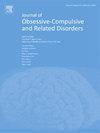Exploring the Peaks and Potholes: Understanding positive and negative effects of concentrated exposure treatment for obsessive-compulsive disorder
IF 1.5
4区 医学
Q3 PSYCHIATRY
Journal of Obsessive-Compulsive and Related Disorders
Pub Date : 2024-10-01
DOI:10.1016/j.jocrd.2024.100913
引用次数: 0
Abstract
The Bergen 4-Day Treatment offers brief concentrated exposure with response prevention (cERP) for obsessive-compulsive disorder (OCD). To date, this intervention has primarily been studied in Norway, and no study has been done on its side effects. We tested the safety, feasibility, and effectiveness of cERP in Germany and compared cERP to a historical inpatient control group.
Thirty-three patients with OCD were treated with cERP. We assessed severity of OCD (primary outcome: Y-BOCS), depression, global functioning, self-esteem, self-efficacy, experiential avoidance, and quality of life at baseline (t0), two weeks after t0 (t1), and three months after t1 (t2). Side effects were assessed at t1 and t2. The changes in OCD were compared to a matched historical inpatient control group (n = 33) treated at the same site.
The cERP group improved over time, with a large effect size in OCD symptoms and other outcome measures. Improvement of OCD symptoms over treatment was superior in the cERP group compared to the historical control group, with a medium effect size for OCD symptoms. 53–56% of the participants reported at least one side effect (e.g., exhaustion). cERP is safe and effective in the treatment of OCD and can be successfully implemented in Germany.
探索高峰与低谷:了解集中暴露疗法对强迫症的积极和消极影响
卑尔根四日疗法为强迫症(OCD)提供简短的集中暴露和反应预防(cERP)。迄今为止,这项干预措施主要是在挪威进行的研究,尚未对其副作用进行研究。我们在德国测试了 cERP 的安全性、可行性和有效性,并将 cERP 与历史住院对照组进行了比较。我们在基线(t0)、t0 后两周(t1)和 t1 后三个月(t2)评估了强迫症的严重程度(主要结果:Y-BOCS)、抑郁、整体功能、自尊、自我效能、经验回避和生活质量。副作用在治疗第一阶段和第二阶段进行评估。强迫症的变化情况与在同一地点接受治疗的匹配历史住院病人对照组(n = 33)进行了比较。与历史对照组相比,cERP 组的强迫症症状在治疗过程中的改善程度更好,强迫症症状的影响程度为中等。53%-56%的参与者报告了至少一种副作用(如疲惫)。cERP治疗强迫症安全有效,可在德国成功实施。
本文章由计算机程序翻译,如有差异,请以英文原文为准。
求助全文
约1分钟内获得全文
求助全文
来源期刊
CiteScore
4.00
自引率
5.60%
发文量
46
审稿时长
47 days
期刊介绍:
Journal of Obsessive-Compulsive and Related Disorders (JOCRD) is an international journal that publishes high quality research and clinically-oriented articles dealing with all aspects of obsessive-compulsive disorder (OCD) and related conditions (OC spectrum disorders; e.g., trichotillomania, hoarding, body dysmorphic disorder). The journal invites studies of clinical and non-clinical (i.e., student) samples of all age groups from the fields of psychiatry, psychology, neuroscience, and other medical and health sciences. The journal''s broad focus encompasses classification, assessment, psychological and psychiatric treatment, prevention, psychopathology, neurobiology and genetics. Clinical reports (descriptions of innovative treatment methods) and book reviews on all aspects of OCD-related disorders will be considered, as will theoretical and review articles that make valuable contributions.
Suitable topics for manuscripts include:
-The boundaries of OCD and relationships with OC spectrum disorders
-Validation of assessments of obsessive-compulsive and related phenomena
-OCD symptoms in diverse social and cultural contexts
-Studies of neurobiological and genetic factors in OCD and related conditions
-Experimental and descriptive psychopathology and epidemiological studies
-Studies on relationships among cognitive and behavioral variables in OCD and related disorders
-Interpersonal aspects of OCD and related disorders
-Evaluation of psychological and psychiatric treatment and prevention programs, and predictors of outcome.

 求助内容:
求助内容: 应助结果提醒方式:
应助结果提醒方式:


